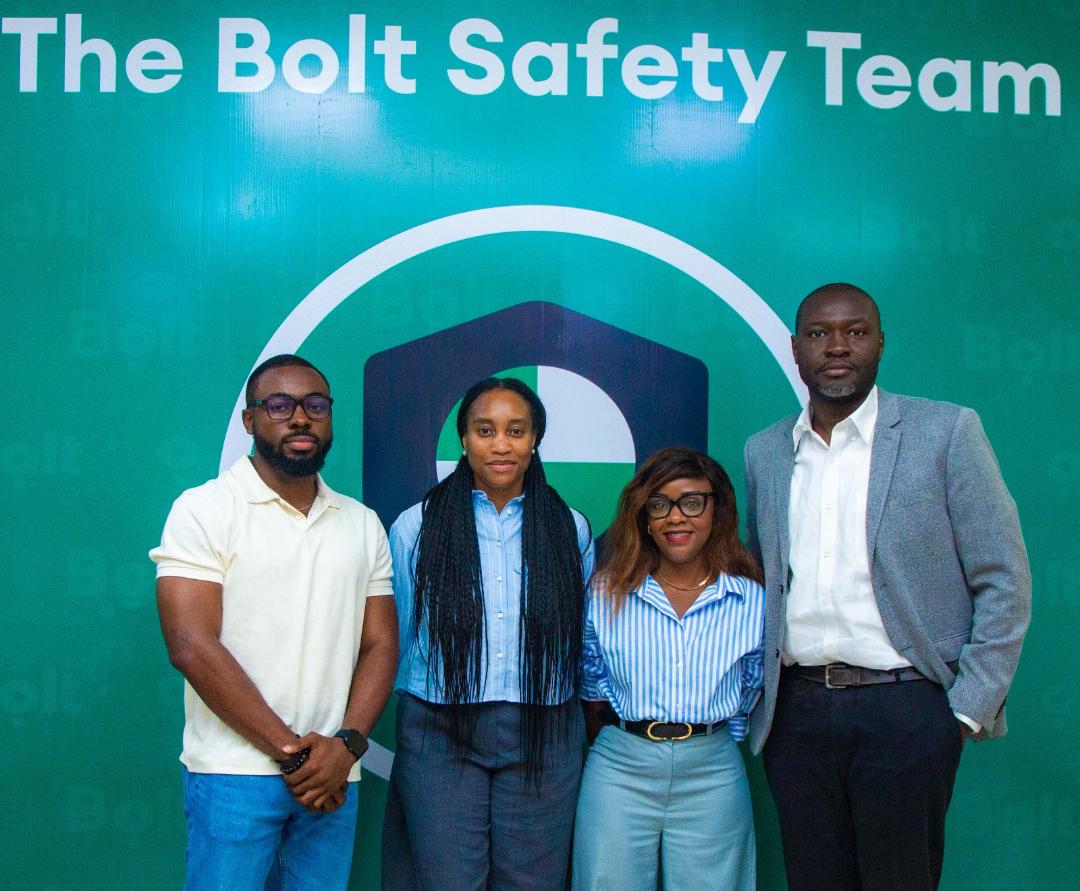By Chinenye Anuforo
Bolt, mobility platform in Europe and Africa, on Wednesday,º announced significant advancements in its safety ecosystem in Nigeria, reporting a 42 per cent reduction in offline trip incidents over the past three months.
This decrease signals increased user engagement with the platform’s in-app safety features, contributing to a safer environment for riders and drivers.
The development was shared during Bolt’s inaugural Public Safety Summit, in Lagos where the company executives detailed new and enhanced safety features designed to bolster rider and driver security.
The summit successfully brought together a diverse group of public safety experts, policymakers, and everyday platform users. Their collaborative efforts aimed to generate ideas and explore long-term strategies for robust ride-hailing security and accountability.
Beyond the reduction in offline trips, Bolt reported substantial increases in the adoption of its in-app safety tools. The Trusted Contacts feature saw a remarkable 298 per cent surge in usage, growing from 7,839 users in January to 31,216 by June. Additionally, the Pick-Up Code feature gained significant traction, with 5,568 riders in Nigeria enabling it, further bolstering trip security.
Speaking at event, Osi Oguah, General Manager for Bolt Nigeria, reiterated the company’s foundational commitment to user safety.
He said, “At Bolt, safety is not merely an added feature; it is fundamental to the service we provide. We are consistently investing in tools and partnerships that prioritize the well-being of our users. This Public Safety Summit represents a significant stride forward in how we engage with our riders, serving as a rider-first platform to listen, learn, and collaborate on new ways to make our services even safer and more responsive.”
Oguah highlighted several key safety features now actively utilized by Nigerian riders and drivers. They includes; Trusted Contacts, a feature that enables users to designate emergency contacts within the app, allowing Bolt to reach out to loved ones in the event of an incident.
Pickup Code which is designed to prevent passengers from entering the incorrect vehicle. This feature mandates a unique code exchange between the rider and driver prior to trip commencement. Ogada reported that about 5,000 riders have taken on the feature, enhancing the accuracy of rider-driver matching.
Also, there is audio trip recording which allows both drivers and passengers to record audio during a trip. These recordings are encrypted, automatically deleted from the device after 24 hours, and can be securely shared with Bolt’s support team for investigation if an incident occurs.
Other ones include real-time trip monitoring, emergency assist, optional trips for drivers amongst others.
“We will continue to iterate, continue to learn, and continue to improve on these features to ensure that our platform remains a trusted and safe platform for passengers to move about,” Ogada stated.
On her own part, Sandra Buyole, Regional PR Manager Africa, reiterated the company’s unwavering dedication to safety. “Safety is at the core of everything we do,” she stated, highlighting Bolt’s rapid global expansion since its 2013 inception in Tallinn, Estonia, to its current operations in over 50 countries, including six key African markets.
She reinforced the critical message regarding in-app usage, emphasizing, “If you are not within the system and within the app, then you are subjecting yourself to danger.” She re-emphasized the importance of utilizing the in-app features to ensure a secure journey.
Bolt emphasized that the summit marks a new chapter in community-driven innovation. “The company is committed to transparency, ongoing safety education, and continuous dialogue with its users, aligning with Bolt’s broader mission to elevate safety standards across the entire ride-hailing sector in Africa”, Buyole stated.

















Leave a comment